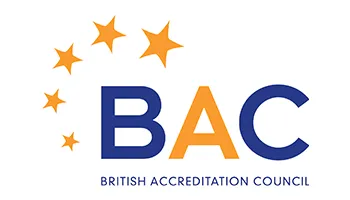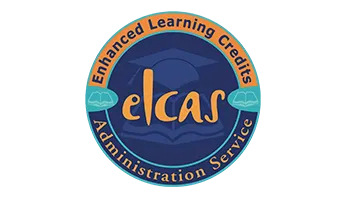
The Benefits of Inclusive Learning and How OLC is Pioneering in this Approach
Published on July 11, 2023 04:53
Overview
Inclusion is one of the most vital aspects of education today, and many students thrive in an environment where diversity is celebrated. To promote inclusivity in learning, an environment that welcomes and accommodates all students, regardless of socioeconomic status, ethnicity, gender, or race, must be established. OLC (Europe) is one of the leading institutions in promoting inclusivity within the higher education sector.
In this blog post, we will discuss the benefits of inclusive learning and how OLC is pioneering this approach. We will showcase OLC's various techniques and programs to establish an inclusive atmosphere for all students. With over 25 years of delivery excellence in teaching and learning. OLC emphases active learning, an educational method that motivates students to engage in collaborative tasks, debates, and hands-on exercises. This approach helps to foster teamwork, collaboration, and social interaction, which is essential in building an inclusive learning environment.
The benefits of inclusive learning
Inclusive learning is a teaching approach that values diversity and creates a welcoming environment for all students. It is an approach that OLC (Europe) has been championing for years. Implementing this approach can bring about several advantages that improve the learning experience for all students.
The inclusive learning approach fosters a feeling of belonging among the student population. When students feel welcomed and accepted, they are more likely to participate in class, engage with their peers, and develop a positive attitude towards learning. Research has supported this, which shows that students who feel connected to their school are more likely to achieve academic success (National Association of Secondary School Principals, 2019).
Inclusive learning promotes teamwork and collaboration. In an inclusive learning environment, students from diverse backgrounds work together to achieve a common goal. This helps to build teamwork skills, social interaction, and empathy for others. A National Bureau of Economic Research study found that students who work in diverse groups tend to perform better academically than those who work in homogenous groups.
Inclusive learning promotes critical thinking and problem-solving. Inclusive learning environments encourage students to question their assumptions, challenge their beliefs, and think critically. This can lead to better problem-solving skills, innovation, and creativity. Research has shown that students who engage in critical thinking tend to perform better academically and have better career prospects (National Center for Education Statistics, 2020).
Promoting social justice and equity, inclusive learning environments provide equal opportunities for all students to succeed, irrespective of their diverse backgrounds, thereby leveling the playing field. Inclusive learning can also help to break down stereotypes, reduce prejudice, and promote understanding between different groups.
Creation of welcoming environment for students
Creating a welcoming environment for students is a fundamental component of inclusive learning. When students feel welcomed and supported, they are more likely to participate in class, engage with their peers, and develop a positive attitude towards learning. At OLC (Europe), creating a welcoming environment for students is at the core of its commitment to inclusive learning.
One way that OLC (Europe) creates a welcoming environment is by promoting diversity and cultural awareness.The college acknowledges the importance of diversity and understands that students have varied backgrounds and life experiences. OLC (Europe) fosters an environment where students feel safe to share their perspectives, opinions, and experiences. This helps to promote understanding, empathy, and respect among students. According to the Center for Public Education (2021), studies have indicated that students are inclined to exhibit positive behaviors and attain academic success when they perceive that they are respected and valued.
Another way that OLC creates a welcoming environment is by promoting a sense of belonging. The college acknowledges the importance of students feeling a sense of belonging in their learning environment. To facilitate this, the institution provides avenues for students to connect with their peers and instructors. OLC (Europe) offers a range of extracurricular activities, such as sports, clubs, and societies, that allow students to develop friendships, social skills, and a sense of community. Research has shown that students who feel a sense of belonging are more likely to engage in positive behaviors, academic achievement, and mental well-being.
OLC creates a welcoming environment by providing support services to students. The college recognizes that students may face challenges, both academically and personally. To help students overcome these challenges, OLC (Europe) provides a range of support services, such as tutoring, counseling, and disability services. The aim of these services is to assist students in achieving success both academically and personally.
Active learning and its benefit
Active learning is a method of teaching that focuses on involving students in the process of learning. Unlike traditional classroom teaching, where students passively listen to lectures, active learning requires students to engage in activities that promote critical thinking, problem-solving, and decision-making. By adopting a dynamic learning approach, students can actively participate in their education, leading to multiple advantages. One of the benefits is an improvement in their ability to retain information. When students are fully engaged in the learning process, they tend to remember the material better.
This is because active learning encourages students to connect new information with what they already know, which helps to reinforce the learning process
Active learning helps to promote higher-order thinking skills. By engaging in activities such as discussions, group projects, and problem-solving, students must analyze information, evaluate ideas, and think creatively. Mastery of these abilities is crucial for achieving success in both professional and personal aspects of life.
Active learning helps to improve student motivation and engagement. Students tend to develop a greater sense of ownership and commitment towards their education when they actively participate in the learning process. This can lead to increased interest and enthusiasm for learning, which can improve academic performance
Conclusion
Active learning is not just a teaching approach; it's a powerful tool that prepares students for the real-world challenges they will face in their careers. By engaging in hands-on activities, collaborating with peers, and thinking critically, students develop the skills necessary for success in the workplace. Active learning not only enhances problem-solving and decision-making abilities but also improves knowledge retention, motivation, and engagement. As educators, embracing active learning empowers us to create an environment where students thrive and truly connect with their learning.
So let us embark on this exciting journey of active learning, where students become active participants in their education, and together, we can shape a future of confident, innovative, and successful individuals ready to conquer the challenges that lie ahead.











